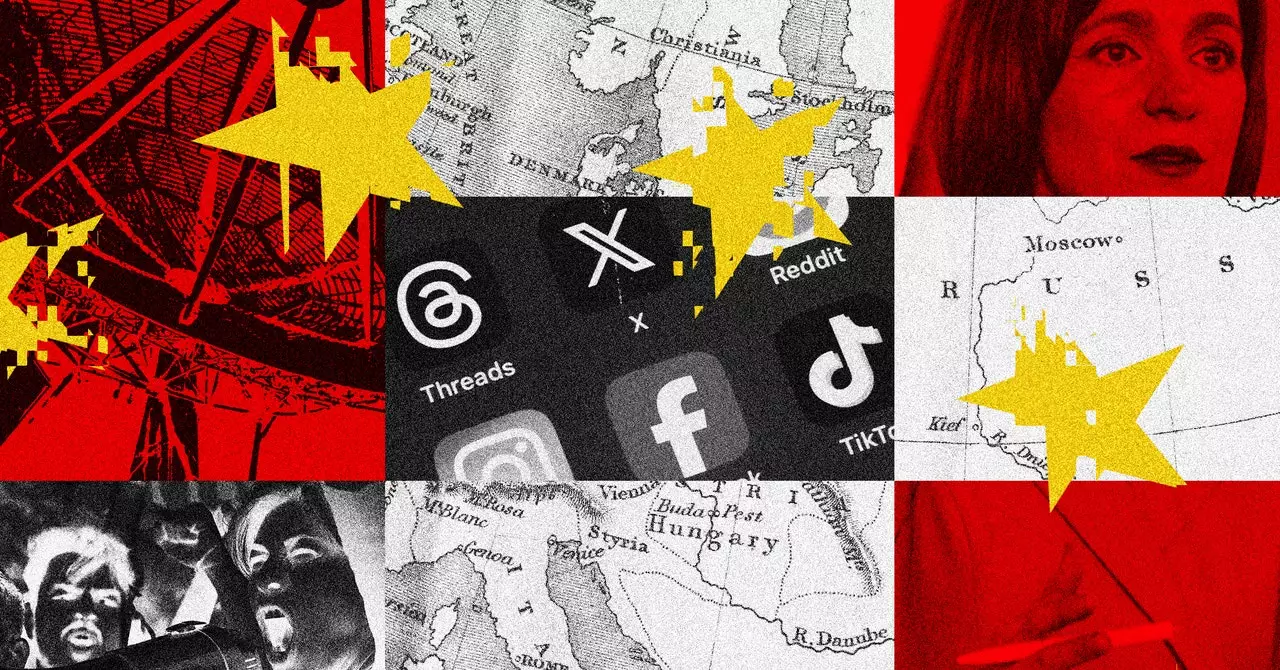The rise of social media has transformed how political messages are disseminated and received across the globe. Recently, a TikTok video featuring Brian Baumgartner, famed for his role as Kevin Malone on the American version of *The Office*, captured attention for its unexpected content. Baumgartner’s video, which called for the overthrow of Maia Sandu, Moldova’s pro-European president, was alarming not just due to the message, but also for its broader implications regarding celebrity involvement in political discourse. This incident reflects a disturbing trend in which familiar faces in entertainment wield influence over geopolitics, often without comprehension of the issues at hand.
Research suggests that the video featuring Baumgartner was not an isolated misstep but rather part of an extensive pro-Kremlin disinformation campaign targeting Moldova. These videos were produced through Cameo, a platform that provides custom content from celebrities, thus enabling the manipulation of public perception through familiarity and trust. Such tactics became prevalent as Moldova, a small nation caught between the EU and Ukraine, prepares for a crucial referendum regarding its governance. It signifies a troubling strategy whereby misinformation is weaponized, eroding the democratic process from within.
Moldova’s struggles with foreign interference are not new, but have intensified markedly since the outset of the Ukrainian conflict. Researchers estimate that social media channels, particularly on platforms such as Facebook and Telegram, have been systematically exploited to amplify pro-Kremlin narratives. Moldovans report being bombarded with politically charged advertisements, often linked to unfamiliar sources. This relentless messaging comes with a staggering financial backer; it is estimated that Meta has profited around $200,000 from these targeted campaigns alone. The financial motives behind the disinformation indicate a larger, calculated infiltration attempting to sway public opinion.
Ana Revenco, Moldova’s former Interior Minister and current head of the Center for Strategic Communication and Combating Disinformation, emphasizes the extraordinary complexity of this situation. Her assertion that these developments hold a “warning for the rest of the world” rings particularly true in an age where misinformation transcends borders and languages. It poses the question of whether other nations are equally vulnerable to similar tactics, underscoring a collective susceptibility to external manipulation through platforms that foster discord.
As Moldova approaches a significant democratic event, the aggression of Russian-linked accounts has escalated. Revenco highlighted that dormant accounts are being activated to further exacerbate tensions. This tactic exemplifies how the manipulative nature of social media can arise in times of political fragility. As countries worldwide navigate their respective challenges, Moldova serves as a critical case study, providing insights into the darker capabilities of social media and the urgent need for enhanced digital literacy and protective measures against disinformation. The power dynamics of celebrity influence combined with the pitfalls of unchecked social media engagement present a formidable challenge that requires vigilance and action on both national and global levels.

